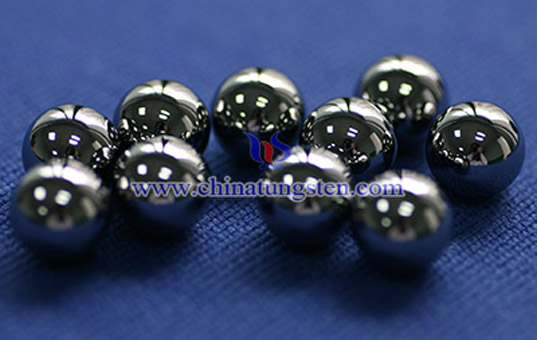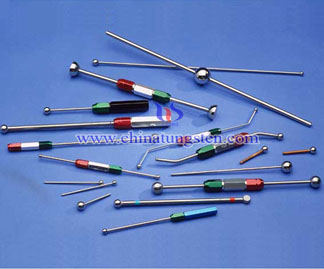텅스텐 카바이드 볼 게이지에 대한

텅스텐 카바이드 볼
텅스텐 카바이드 볼 are used where extreme hardness and wear resistance is required; in such applications as bearings, ball screws, valves, flowmeters. 텅스텐 카바이드 볼 are also used for coining and pivots, detents and tips for gages and tracers. Decimal-inch size 텅스텐 카바이드 볼 are widely used for ballizing or hole sizing. 텅스텐 카바이드 볼 are also used for gauging and checking. 텅스텐 카바이드 볼 may also be brazed onto a stem or shank to be used for valves, gauges and other applications.
Ball Gauge
A ball gauge is an instrument used by the umpires in cricket to check whether the size of a cricket ball meets the standard measurements mandated by the Laws of Cricket. It is usually in a form somewhat like a pair of handcuffs with two connected rings: one ring has the minimum acceptable diameter, through which the ball should not pass; the other ring has the maximum acceptable diameter, through which the ball should pass.
If the ball cannot pass through the maximum diameter, or passes through the minimum diameter, or becomes mis-shapen, the umpires should replace the ball. The replacement ball is ideally an old ball that was used in a previous match for a comparable number of overs as the ball being replaced, so that it has had approximately the same amount of use and wear as the old ball.
장점
텅스텐 카바이드 볼 게이지에 대한 has a unique advantage over conventional inspection methods. Its spherical shape provides a self-centering line of contact that can be inserted into a hole at any angle.
The ball will not stick or bind, allowing it to be used to measure bell mouth and taper.
The ball gauge is excellent for use in confined areas even when the actual hole or groove being measured cannot be seen by the inspector. A feature buried down in a hole or inside a cavity can often be measured by putting a bend in the stem of the ball gauge.
The ball gauge is at its best when used to measure holes which have a constant diameter but are not straight--Piping and Tubing for instance. A variation of the ball gage concept is to mount the ball on a flexible wire so it can actually go around corners. The ball can be put in the middle of a long wire and pulled in either direction.

